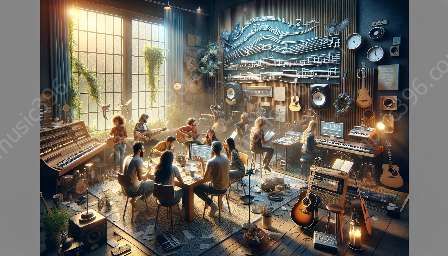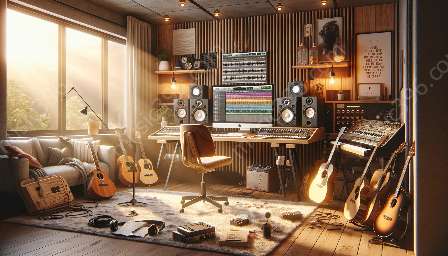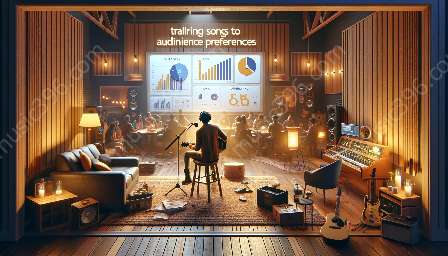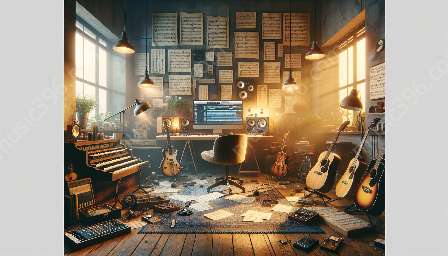Creating music has become more accessible than ever with the rise of DIY music production. Songwriters who are capable of producing their own music have the potential to significantly impact their economic prospects in the music industry. This topic cluster will delve into the economic implications of developing DIY music production skills for songwriters, exploring how it can enhance creativity and income opportunities.
Embracing DIY Music Production
Songwriters traditionally rely on recording studios and professional producers to bring their songs to life. However, the development of affordable recording equipment and intuitive music production software has empowered songwriters to take control of the entire music production process. By embracing DIY music production, songwriters can experiment with different sounds, arrangements, and production techniques, shaping their music to align with their artistic vision.
Economic Benefits
Developing DIY music production skills can have significant economic benefits for songwriters. Firstly, it reduces the reliance on costly studio recording sessions and professional producers, allowing songwriters to produce high-quality music at a fraction of the cost. This cost-saving aspect is particularly beneficial for independent songwriters and emerging artists who may have limited financial resources.
Moreover, by mastering music production, songwriters can potentially expand their revenue streams. Beyond selling their completed songs, they can also offer production services to other artists, collaborate on projects as a producer, or create instrumental tracks for licensing in film, television, and advertising. This diversification of income sources can contribute to a more stable financial foundation for songwriters pursuing a career in music.
Enhanced Creativity and Artistic Control
DIY music production allows songwriters to possess complete control over the sonic landscape of their music, fostering a deeper connection to their creative process. With the ability to experiment with various production techniques, instrumentation, and soundscapes, songwriters can push the boundaries of their creativity and develop a distinctive sound that resonates with their audience.
Furthermore, the increased autonomy in music production empowers songwriters to express their artistic vision in a more nuanced manner. Rather than relying on external producers to interpret their songs, songwriters can ensure that the final product accurately reflects their artistic intention, resulting in a more authentic and personally fulfilling creative output.
Opportunities in the Music Industry
Equipping themselves with DIY music production skills opens up new opportunities for songwriters within the music industry. Beyond creating and releasing their own music, songwriters can explore roles as music producers for other artists, leveraging their production expertise to contribute to a diverse range of musical projects. This expanded skill set not only broadens their career options but also positions them as more valuable collaborators within the industry.
Additionally, the proficiency in music production can enhance a songwriter's attractiveness to record labels, publishers, and music supervisors who seek versatile and self-sufficient artists. As the industry continues to evolve, being adept at DIY music production can give songwriters a competitive edge and increase their chances of securing lucrative deals and partnerships.
Conclusion: Embracing the DIY Approach
Ultimately, developing DIY music production skills can positively impact the economic trajectory of songwriters. It empowers them to create high-quality music without incurring exorbitant production costs, expands their potential revenue streams, and elevates their role within the music industry. Moreover, the creative and artistic freedom afforded by DIY music production can lead to more compelling and authentic musical expressions, resonating with audiences and industry professionals alike.

























